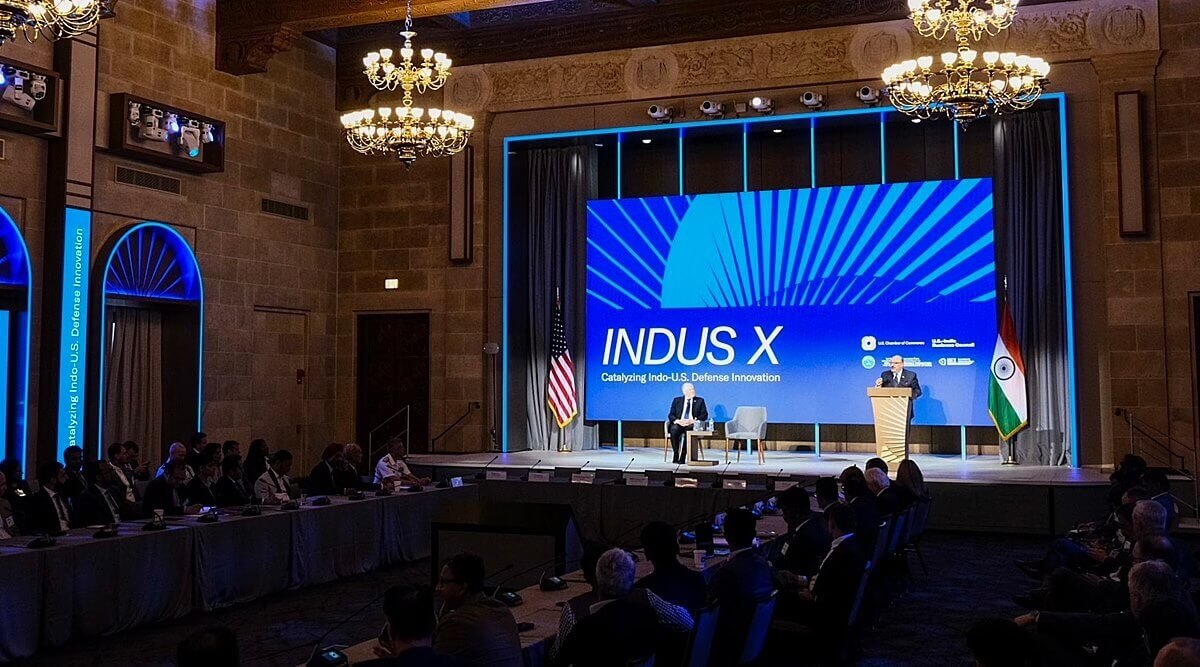The US Space Force, in collaboration with the Air Force Research Laboratory (AFRL), has entered into its first-ever Cooperative Research and Development Agreements (CRADAs) with two Indian space startups, 114AI and 3rd ITECH.
India-US Collaboration
The agreements aim to facilitate cooperation in advanced technologies without the exchange of federal funds to industry partners. They will also help facilitate the exchange of expertise, access to laboratory space, and provision of equipment.
According to AFRL’s media statement, these CRADAs represent a significant step in advancing innovation in Earth observation sensors and space domain awareness.
Both 114AI and 3rd ITECH are not new to the US space market ecosystem. In the past, both the Indian companies have signed strategic partnerships with General Atomics-Aeronautical Systems (GA-AS) in San Diego.
3rd ITECH, India’s sole image sensor company, signed an agreement with GA-AS to co-design and co-develop cutting-edge semiconductor technology.
Meanwhile, GA-AS has a separate agreement with 114AI, an AI firm that builds dual-use software for domain awareness, to apply artificial intelligence tools to multi-domain awareness.
#WATCH | We also discuss an important new initiative, INDUS-X, that aims to jumpstart partnerships between the US and Indian defenCe innovation sectors. We're looking forward to the formal launch of INDUS-X in conjunction with Prime Minister Modi's state visit to Washington.… pic.twitter.com/VlIzMF1zsV
— ANI (@ANI) June 5, 2023
Modi-Biden Meeting
The development comes after a landmark meeting between Indian PM Narendra Modi and US President Joe Biden in June, during which they signed the Artemis Accords, effectively expanding its scope for space exploration.
As part of the deal, the US’ National Aeronautics and Space Administration (NASA) will provide advanced training to astronauts from the Indian Space Research Organisation (ISRO), with the goal of launching a “joint effort” to the International Space Station next year.
The two space agencies are also developing “a strategic framework for human spaceflight cooperation” by the end of this year.
Moreover, New Delhi approved a $318 million investment to construct a Laser Interferometer Gravitational-Wave Observatory in India, which will work with similar facilities in the US, Europe, and Japan, and “look for ripples in space-time, known as gravitational waves, that provide insights into the physical origins of the universe.”
In addition, scientific payloads for the NASA-ISRO Synthetic Aperture Radar have been delivered to India and will be launched in 2024. This will help measure the Earth’s “changing ecosystems like natural hazards and sea level rise.”
The US Geological Survey and ISRO are also negotiating an expansion in bilateral data exchange, which will help gain “greater insight about the earth, including for a range of applications, such as climate resiliency, sustainable development and management of natural resources, and disaster management support.”
Modi and Biden had launched the India-US Defence Acceleration Ecosystem (INDUS-X) to enhance cooperation in the defence industry and technology sharing.
According to the US Space Force, the INDUS-X is “a network-fostering joint defence technology innovation between the two country’s universities, startups, industry and think tanks as part of the US-India initiative on critical and emerging technology, or iCET.”

